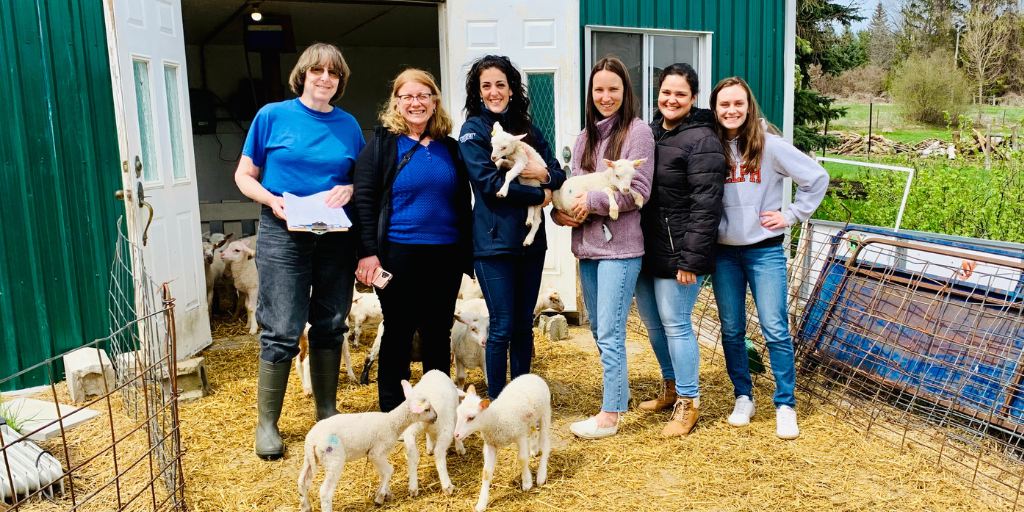Infection with gastrointestinal nematodes (a type of infectious parasite) is a significant problem affecting sheep livestock, and it’s expected to worsen as the climate changes. The condition can cause various issues, including reduced weight gain, diarrhea, and even death, leading to significant economic losses for sheep producers.
To address this challenge, a group of Highly Qualified Personnel scholars, including Victoria Asselstine, Samla Cunha and Olivia Willoughby, all graduate students in the Department of Animal Biosciences, are using cutting-edge OMICs technologies to investigate the immune response of sheep to gastrointestinal nematode infection and identify potential key regulator genes associated with immunity.
OMICs refer to a pool of technologies used to measure and characterize different biomolecules in cells or tissues. The primary aim of OMICs technologies is to study genes (genomics), RNAs (transcriptomics), proteins (proteomics), and metabolites (metabolomics).
The project is part of a Food from Thought-funded research led by Dr. Angela Cánovas, a professor in the Department of Animal Biosciences and an OAC Chair in Phenomics and Systems Biology at the University of Guelph. The Cánovas lab team uses transcriptomics to study differentially expressed genes, mRNA isoforms, and non-coding RNA between healthy and infected sheep. This helps to identify key regulator genes.
“The study is an important step towards addressing the challenge of gastrointestinal nematode infection in sheep,” said Dr. Cánovas.
“With the help of OMICs technologies, our research team is working towards a future where sheep producers can select more resilient animals, which will help ensure the sheep industry’s sustainability.”
She says the study’s results will provide valuable insights into the immune response of sheep to gastrointestinal nematode infection and lead to the development of new strategies to improve the health and well-being of these animals.
More information on this research is available at: https://foodfromthought.ca/research/livestock/breeding-livestock-for-climate-resilience/


